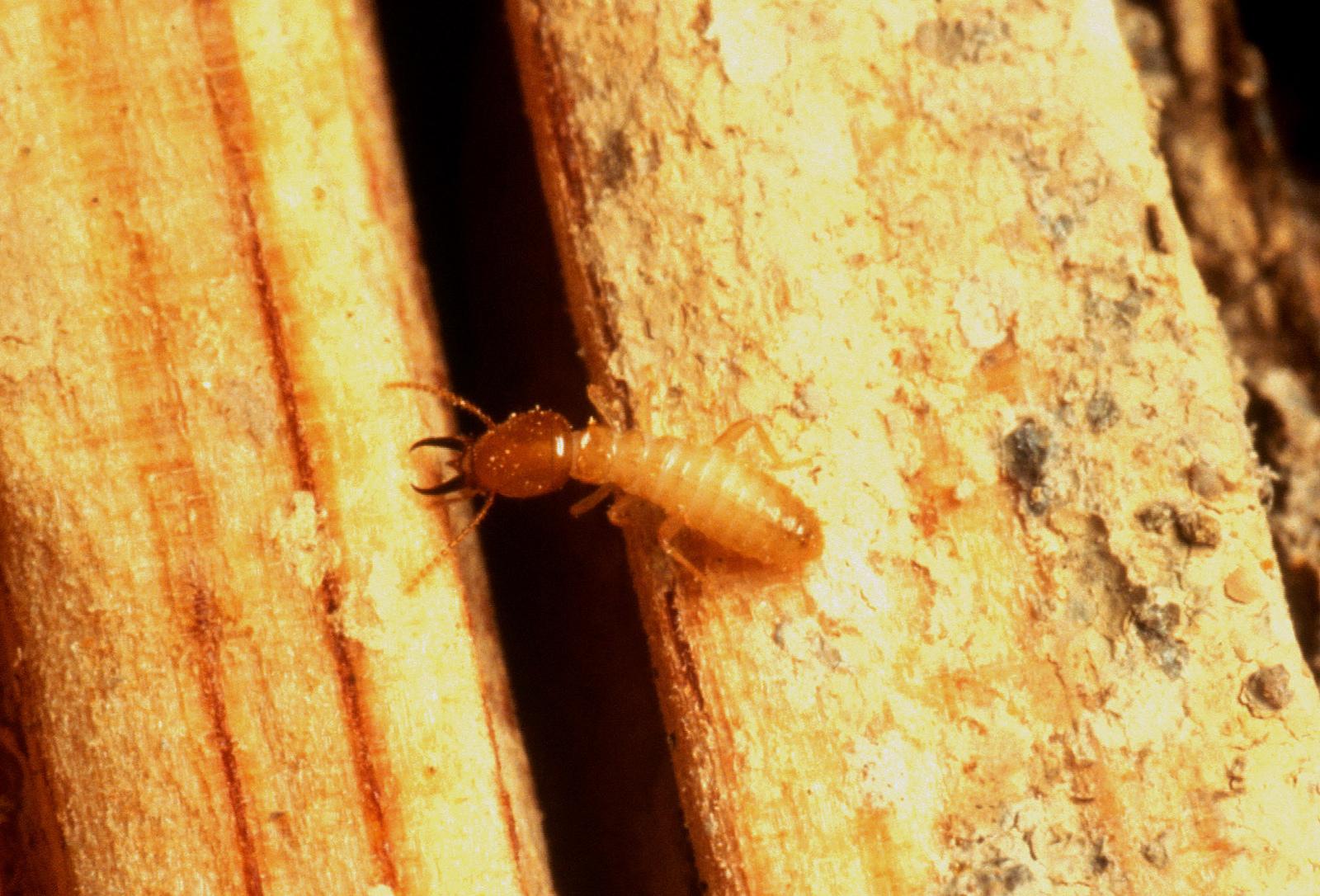Recent study shows that invasive insects cause billions of dollars in damage each year
A Formosan subterranean termite soldier gnaws on a piece of wood. Soldiers make up approximately 10 percent of a termite colony. Formosan subterranean termites have powerful mandibles for defense against intruders and dark, oval head shapes contrasting with the more rectangular head shape of the native Eastern subterranean termite.
Invasive insects cause at least $77 billion in damage every year, according to a study released Tuesday that says this figure is "grossly underestimated" because it covers only a fraction of the globe.
Climate change is on track to boost the area affected by nearly 20 percent before mid-century, the authors reported in the journal Nature Communications.
Canvassing more than 700 recent scientific studies, researchers looked at the impact of non-native species on goods and services, healthcare and agricultural output.
Most of these studies applied to North America and Europe, which means the devastation wrought by crop-chomping and disease-carrying bugs from afar has not been adequately measured, the authors said.
The most destructive of the insects canvassed was the Formosan subterranean termite, which lives in huge colonies and feasts on wooden structures and living trees.
It has infected large swathes of the United States and has proven impossible to eradicate.
The diamondback moth, which originated in the Mediterranean region, has also spread worldwide and is a voracious consumer of so-called cruciferous crops: broccoli, cauliflower, bok choy and especially cabbage.
Also in the rogues' gallery of invasive insects are the brown spruce longhorn beetle (which ravages evergreen trees, especially in Canada), the gypsy moth (tree defoliation) and the Asian long-horned beetle (which attacks temperate forests).
Insects are "probably the costliest animal group to human society," a team of researchers led by Franck Courchamp from France's National Centre for Scientific Research concluded.
The global health bill attributable to invasive insects tops six billion dollars, in large measure due to the impact of Dengue fever, a tropical disease spread by mosquitoes.
The estimate does not include the impact of malaria, the Zika virus or economic losses in tourism or productivity, the researchers said.
Pesticides 'not the solution'
Global warming — which has seen average surface temperatures climb 1.8 degrees in the last 150 years — has pushed plants and animals towards the poles, especially northward.
"The distribution of many invasive species is today limited by temperature barriers, and climate change could allow them to invade regions that were inhospitable up to now, said Courchamp.
There are some 2.5 million insect species in the world. Only a tiny percentage — some 2,200 — have colonised new territories, but they have managed to wreak havoc all the same.
Only a tenth of insect species that wind up in another part of the world become established, and only ten percent of these qualify as invasive, the study notes.
The best way to combat this growing threat — spread mainly through international commerce — is not more pesticides, said Courchamp.
"We've seen how well that worked," he told AFP.
Nor is it genetic manipulation such as gene drive, a technology that makes it possible to engineer local extinctions by releasing males into the wild that produce only male offspring.
"The solution is better 'bio-security'," said Courchamp.
"This includes inspection of [the] ship and air cargo from certain regions, legislation to ensure that high-risk imports must be treated and rapid eradication of new incursions."
All insects, including those in their native habitat, take a heavy toll on agriculture, consuming 30 to 40 percent of global harvests — enough to feed a billion people.
Mosquito-borne diseases, especially malaria, claim hundreds of thousands of lives every year.
The International Union for the Conservation of Nature (IUCN) maintains a database of invasive species with nearly 900 species currently listed, including plants, animals, bacteria and fungus.
The UN Convention on Biodiversity has said that "priority" invasive species should be "controlled or eradicated" by 2020.
Every day, reporters and producers at The World are hard at work bringing you human-centered news from across the globe. But we can’t do it without you. We need your support to ensure we can continue this work for another year.
Make a gift today, and you’ll help us unlock a matching gift of $67,000!
